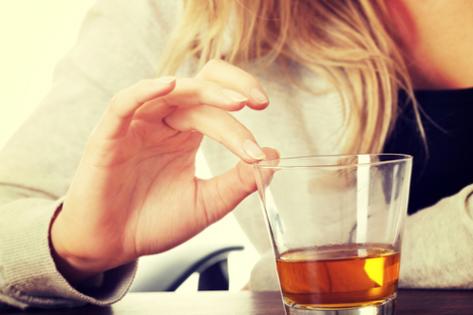Devastating impact of alcohol on children and families:More than 1,000,000 children are affected in some way by others' drinking.
Date: February 25 2015

A new study has revealed that in 2011 there were almost 30,000 police reported incidents of alcohol-related domestic violence in just the States and Territories of Australia where such data is available. That figure excludes alcohol-related assaults in Queensland, South Australia, Tasmania and the Australian Capital Territory.
The study, which was launched by Australian of the Year Rosie Batty on Tuesday, draws on two national surveys of alcohol’s harm to others, service system data from policy and child protection services and information gained from qualitative interviews with families affected by others’ drinking, which revealed that children experienced a range of harms.
Children were verbally abused, left unsupervised, physically hurt or exposed to domestic violence as a result of others’ drinking. Most commonly, children witnessed verbal or physical conflict or inappropriate behaviour.
More than one-in-four of respondents reported harm from the drinking of family members in at least one of the surveys undertaken in 2008 and 2011. These harms often persisted overtime, with 50% of adult respondents harmed in 2008 also harmed in 2011 and 35% of children harmed in 2008 also harmed in 2011.
With approximately half of reported domestic violence incidents and up to 47% of child protection cases involving alcohol, the Chief Executive of the Foundation for Alcohol Research and Education, Michael Thorn, says we need to understand alcohol’s role in family and domestic violence and use this information to act to prevent this violence from occurring.
“Alcohol-related family and domestic violence occurs all too frequently in Australia, and as a society, we need to be doing all we can to reduce the incidence and severity of the harms. This research makes very clear that because of the scale of the problem and the large numbers of children and families affected; governments must embrace a broad public health approach with a strong focus on prevention,” Mr Thorn said.
The Domestic Violence NSW Chief Executive,Ms Moo Baulch, said she welcomed research that might lead to a greater understanding of the problem and the development of policies that would see a reduction in harms.
“Domestic and family violence has been variously and accurately described as our nation’s shame and a national emergency.
“Domestic and family violence is an abuse of power and control and there is no excuse for it. We need to better understand the links between alcohol and domestic abuse. If there is any comfort at all to be found at present, it is that the issue of domestic and family violence has found itself, not before time, front and centre of the national agenda and public awareness. Governments are now looking to act and I for one welcome robust research findings that provide us with a more complete picture of the problem, and help identify and explore the policies that may address it,” Ms Baulch said.
FARE has developed an options paper in consultation with public health, domestic violence and family services to propose a framework for action to prevent and reduce alcohol-related family and domestic violence.
The paper proposes a range of measures which can be implemented across the community that focus on preventing violence before it happens, intervening early to prevent further harms for victims of violence and ensuring that service responses are appropriate. Mr Thorn says there is no one single solution to reduce alcohol-related family violence.
“If we are serious about reducing alcohol-related family violence, we have to consider a wider range of policy measures. We need national public education campaigns that acknowledge and address the role of alcohol in family violence; we need targeted screening of young people at greater risk of harm; and measures that reduce the availability, target the price, and regulate the promotion of alcohol; together with efforts to improve the way in which the alcohol and other drugs sector collaborates with domestic violence, child protection and mental health services,” Mr Thorn said.
|
||||||||||||||||||||||||







 Agree (0)
Agree (0) Disagree (
Disagree (











__small.png)










